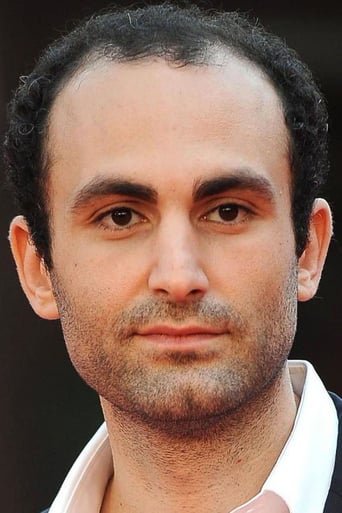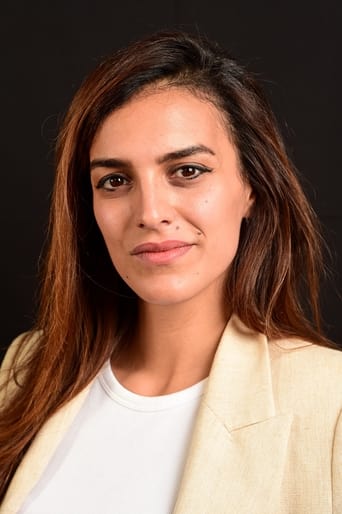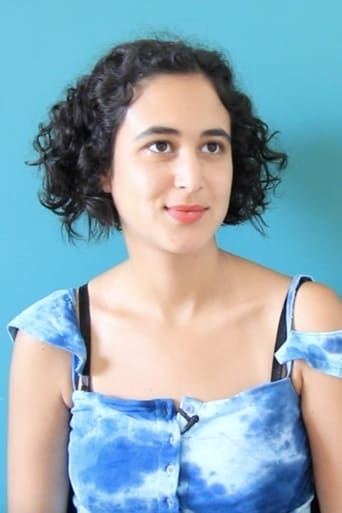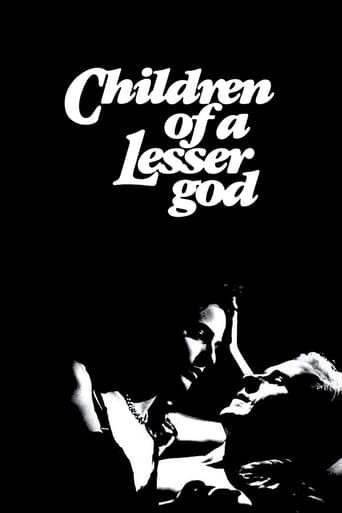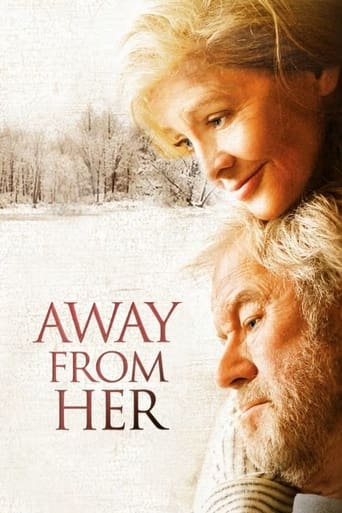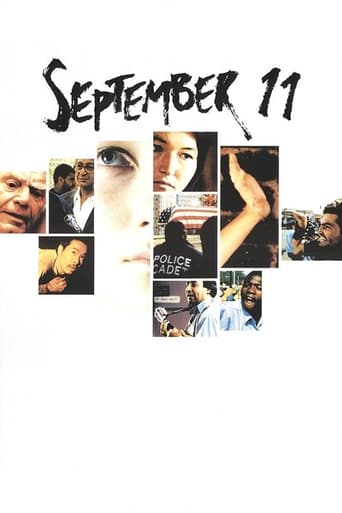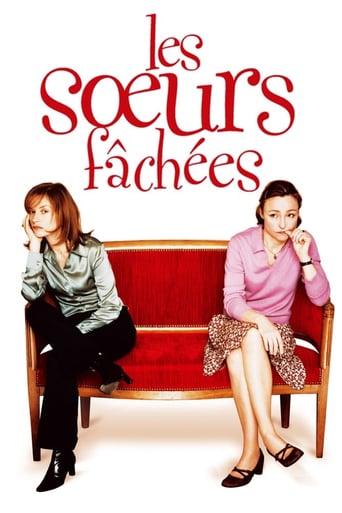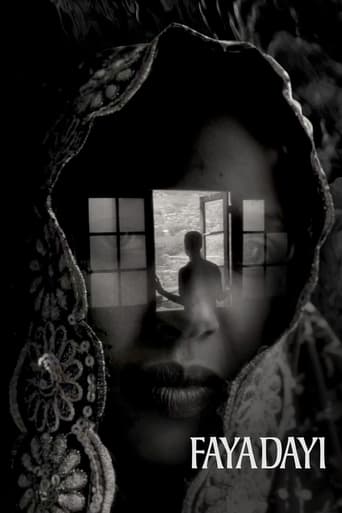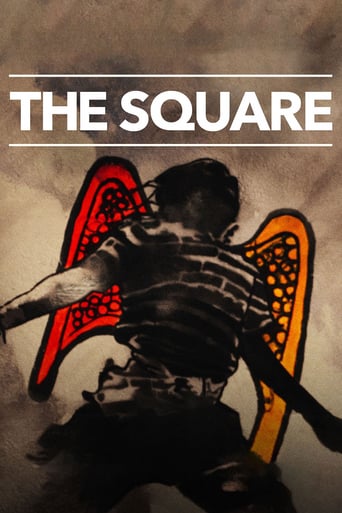
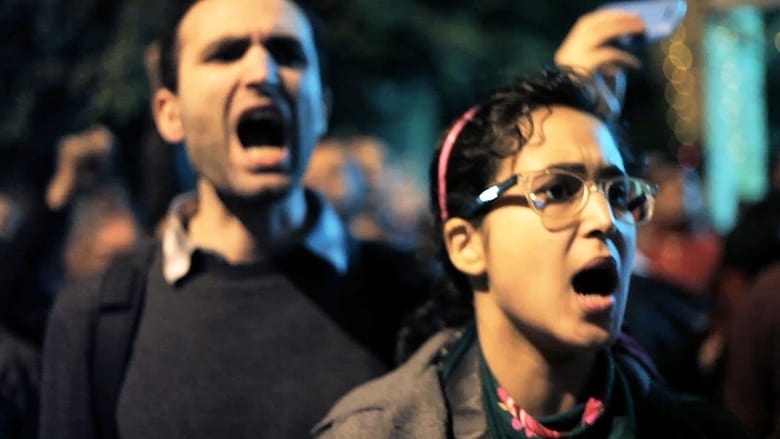
The Square (2013)
The Square looks at the hard realities faced day-to-day by people working to build Egypt’s new democracy. Cairo’s Tahrir Square is the heart and soul of the film, which follows several young activists. Armed with values, determination, music, humor, an abundance of social media, and sheer obstinacy, they know that the thorny path to democracy only began with Hosni Mubarak’s fall. The life-and-death struggle between the people and the power of the state is still playing out.
Watch Trailer
Cast


Similar titles
Reviews
Viewed at Los Angeles Preview, Dec. 2013: "The Square" (Al Meidan). a new documentary thriller straight from the barricades in Cairo, has received the Best Documentary of the year award and has turned out to be one of the hottest film events of the tail end of calendar year 2013. PHOTO: Ahmad Hassan, young protester rides atop a triumphant crowd in Tehrir Square"The Square" (Tehrir Square in Cairo, scene of all the major Egyptian protest demonstrations of the past two years) a two hour long documentary on the Nightmarish 'Arab Spring' in Egypt, is an astounding personal summary of the events in Egypt from the fall of the Mubarak dictatorship in early 2011 to the rise and fall of the Moslem Brotherhood under "legally elected" Islamist president Morsi just a few months ago.Intrepid female director, Jehane Noujaim, an American Egyptian filmmaker went to Cairo in January 2011 to witness the historical events taking place in her home town with no such ambitious film project yet in mind ..The reality on the ground in front of her eyes in the very neighborhood where she grew up — with cataclysmic political changes already underway — prompted her to set up a team to record these unfolding events in proper professional style. She and her team stayed with the ongoing insurrection for two years, through thick and thin, focusing on the personalities of three central impromptu revolutionaries, while placing themselves directly in the line of fire.What emerges is a you-are-there documentary that is more cinema vérité than classical documentary — like news flashes from the front lines with a Hollywood thriller plot line to boot.Basically she followed three regular Tehrir protesters around, both on the street during life- threatening situations, and off the street in private interviews reflecting on the events in progress. One, Ahmed Hassan simply speaks straight from the shoulder with no pretensions whatsoever. Ahmed is an average guy who is convinced that the time for the common people to regain their dignity after decades of humiliation and oppression under Mubarak has finally come. He just happens to have the disarming charm and charisma of a Leonardo Di Caprio.Khalid Abdallah is a professional British actor of Egyptian background with a Cambridge degree. In 2006 he played the leader of the Arab hijackers in Paul Greengrass's 9/11 drama "Flight 93″. In Jehane's Square he plays himself — an ordinary Egyptian with a conscience crying out for democracy. Khalid takes a more intellectual view than the others but is every bit as committed and willing to put his body on the line. His father back in England is also a longtime advocate of democracy for Egypt. We see Khalid talking to his father via SKYPE in UK to keep him abreast of happenings on the front line in the Square.The battle lines swing back and forth. After Mubarak is toppled an interim military junta takes over. Finally the Junta agrees to hold "free elections"' however, as Hassan points out with surprising political savvy, the democratic minded opposition in The Square has no cohesive structure, so the choice becomes one between the fundamentalist minded Moslem Brotherhood, or a continuation of Mubarak style Military rule — in other words not much of a choice at all for the democracy minded activists who represent the bulk of the Egyptian populace.The Botherhood — the "Akhwan" — win by a slim majority and Morsi takes over — as a "legally elected" president. At first even Washington supports him, but it soon becomes clear that Morsi wants to install an Islamic Dictatorship. Watching Morsi attempting to assume dictatoriaĺ powers on television Ahmed Hassan remarks wryly, "He's digging his own grave" — and then leads another charge into The Square. This time Hassan is hit by live ammo and hospitalized, but he recovers quickly and the Moslem Brotherhood regime is also toppled. But what is the new alternative?The third central figure is Magdy, a personal friend of secular Ahmed but a committed Moslem Brotherhood believer. As events progress we witness his final disappointment and disillusion with the brotherhood in spite of his deep religious feelings. His own son is now an active demonstrator against Brotherhood oppression. At the end of the film, completed just two months ago, the military is back in the drivers seat and the nation is in limbo. In a final sequence the three main figures agree that the opposition is too unstructured and that what is needed is a new constitution — and a new consciousness — but this will take time to work out.As the year 2014 opens the situation in Egypt is still up in the air with the military cracking down severely, much as was the case under Mubarak. The question now is what is worse?– the military or the Islamists — and will democracy in some form still have a chance?On very limited release in November 2013 this amazing film was seen by almost nobody because NETFLIX who own the rights, allotted Zero publicity budget. However, The power of Jehane Noujaim's film is such that, if it gets an Oscar in March on top of the Best Documentary distinction already earned it may become an international cause celèbre and may then reach enough people to make a real difference on the ground — not only in Egypt but elsewhere as well. In any case this is a film absolutely not to miss simply as a cinematic adventure that is sure to become a landmark if and when the final chapter of the Arab Spring is ever written.
What an amazing movie, if you ever want to learn the story of the Arab spring in Egypt and its after match, than you must go see this movie.the documentary mostly made up out of material shot by protesters tells the intense story of the Arab uprising in Egypt, Cairo.Told by a youngster one can only show admiration for how persistent these men and women fought for their freedom, at the same time it shows the after match of this revolution.Sadly enough this movie didn't win the Oscar (which it should have won). Told by real bystanders and shot by bystanders this gives a very dramatical and realistic image of the uprising, a must see for everyone.
THE SQUARE is a raw, uncompromising documentary charting the Egyptian revolution that began with the overthrowing of Pressident Mubarak, and continues to this day. President Morsi was elected and overthrown; and the people are perpetually at war with one another. The film tells the stories that have often been neglected with the reporting of the conflict in the western media. Using five different people of different ages and different backgrounds as their subjects, director Jehane Noujaim shows the spontaneity of the so-called "Arab Spring" - it began as a popular movement among young people and continues in similar vein to this day. They are not only frustrated with the established forces of government, as well as the army, but they are searching for a more democratic form of living. Despite repeated - and often violent - attempts to suppress them, their will to resist remains unshakable. The film includes several violent sequences attesting to the brutality of the army's treatment of the revolutionaries. What gives THE SQUARE its true originality, however, is its refusal to be constrained within western-inscribed intellectual boundaries. Revolutions are supposed to be decisive, with one government supplanted by another; this film shows that the revolution in Egypt is a long one, and is still by no means concluded. The actor Khalid Abdalla, one of the main protesters, makes this point; after two years, certain reforms have been achieved, but the protests need to continue long-term. Revolutions are also supposed to be about ideology - the Russian Revolution, for instance, helped usher in communist rule. In Egypt, as with other countries in the region, the protesters don't necessarily have a coherent ideology (even though their concerns are obviously ideological); they are just looking for a form of government in which their voices can be heard. And perhaps most importantly, the subject-matter of THE SQUARE is not just about Egypt, but can also apply to other countries who have experienced similar protests - Tunisia, Syria and Turkey. If filmgoers want to learn more about the consequences of the so-called "Arab Spring" (a term which has been embraced by the west, but seems to me misleading), they should watch this film. Essential viewing.
Himself - Revolutionary: "We're not looking for a leader as much as we're looking for a conscience . . . . If we are able to create this conscience within the society, we'll be able to find a good president."And so a revolution goes—not a coherent plan but a passion for democratic equality and justice. The Square squarely hits the historical details about the people's revolution in Egypt in Cairo's Tahrir Square from 2011-2013.As the Egyptian proletariat protest and dethrone President Hosni Mubarak, remove the military, and install Mohamed Morsi, nothing is as they wanted it. Each time, even now, produces another repressive regime while the people hope for freedom.Acclaimed director Jehane Noujaim (Sundance award for Startup.com) consistently shows the protesters' point of view, in a remarkably consistent tone that is neither preachy nor emotionally removed. She reveals the frustration of the revolutionaries, who willingly give their lives for their ideals but still end up imprisoned by the ruling elite, whom the revolutionaries were instrumental in installing.Noujaim does not make a judgment; rather she shows the complexities of the revolutionaries' motives and strategies without predicting the future. The doc puts in perspective the four major components: Muslim Brotherhood, ruling parties, military, and commoners, and emphasizing the irony of this review's opening quote. While seeking a conscience, Egyptians seem to miss the importance of a charismatic leader (Che Guevera? Abraham Lincoln? MLK? See above quote).Their quest for "conscience" exposes the weakness of the doc as well: Missing a compelling protagonist in a revolution and a documentary leads to a tedious repetition of events without the umbrella of a defining leader with an incendiary philosophy. But that imperfection leads to a realistic depiction of revolution, whose ideals Westerners can easily identify with:Himself - Revolutionary: "The leaders play on top. The people pay the price for everything. The people always pay the price."


